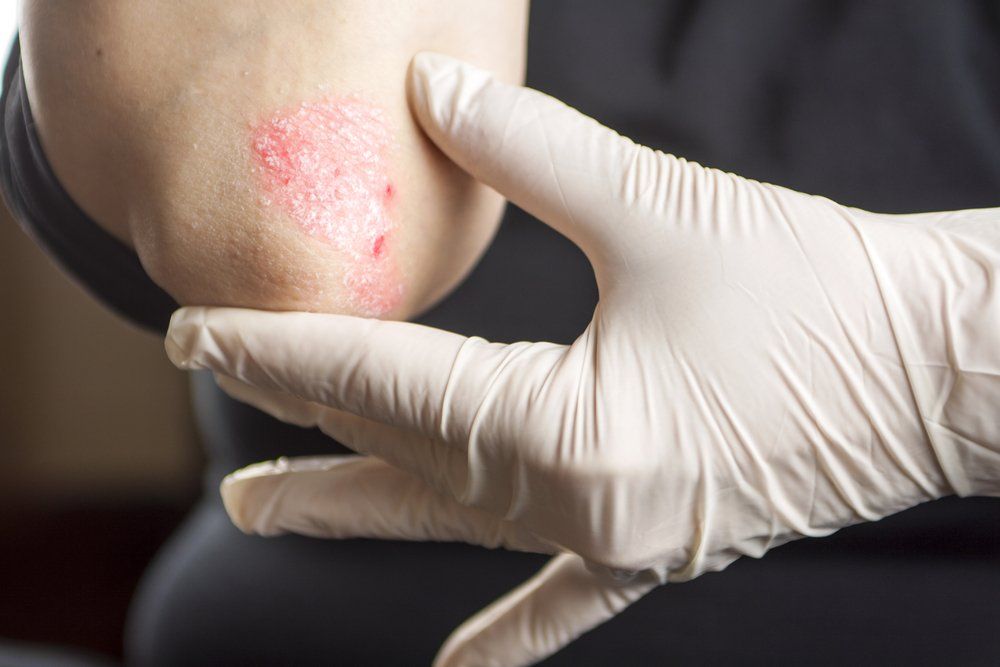UPJOINT: Upadacitinib Demonstrates Efficacy, Safety in Interim Analysis
An interim analysis from the UPJOINT trial provides insight into the effects of upadacitinib use in real-world settings among patients with oligo- or polyarticular psoriatic arthritis.
Credit: ShutterStock

A new report detailing efficacy and safety data from the first 192 patients treated in the UPJOINT study is providing new insight into the effects of upadacitinib (Rinvoq) in patients with active psoriatic arthritis (PsA).
Data from the study, which is a multicenter, observational study in patients with either oligo- or polyarticular PsA, suggest nearly 60% of patients had achieved clinical remission by week 24, with 91.1% reporting a body surface area affected by skin psoriasis (BSA) of 3% or fewer among participants.1
“The results of this interim analysis confirm the efficacy of [upadacitinib] for patients with active PsA and inadequate response to previous antirheumatic treatment, as demonstrated in previous [randomized controlled trials] without observing any new safety signals. Particularly for [minimal disease activity], our findings highlight that [upadacitinib] improves PsA-related symptom severity during the first 12 weeks of therapy, lasting throughout week 24,” wrote investigators.1
An agent boasting more than half a dozen indications from the US Food and Drug Administration, upadacitinib received approval for active psoriatic arthritis in December 2021.2 An observational, prospective, multicenter study conducted at 92 sites in Canada and Germany, the UPJOINT trial was launched with the intent of examining the effects of upadacitinib use in real-world clinical settings among adults with either oligo- or polyarticular PsA, a patient population with an increased potential for greater disease burden.1
For inclusion in the trial patients needed to be at least 18 years age, have a diagnosis of active PsA as determined by the treating physician, have a swollen joint count of 1 or greater, be receiving upadacitinib, and have made the decision to initiate treatment with upadacitinib prior to participation in the study. A 48-week trial, the trial protocol called for 6 scheduled study visits to occur at baseline and weeks 4, 12, 24, 36, and 48.1
In the current publication, investigators, led by Axel Hueber, MD, PhD, of the Division of Rheumatology at Paracelsus Medical University, provided results from an interim analysis of data at week 24 of the trial, with a focus on composite measures, clinical assessments, and patient-reported outcomes. The investigators’ analysis leveraged data from 296 patients within the study who completed baseline visits, including 192 who completed the week 24 visit at the time of analysis. This cohort was 65.5% female, had a mean age at baseline of 54 (standard deviation [SD], 11.7) years, 39.5% had oligoarticular PsA, and 60.5% had polyarticular PsA.1
Upon analysis of 24-week visits, results suggested the proportion of patients achieving minimal disease activity increased from 2.7% at baseline to 39.1% (95% Confidence interval [CI], 32.1-46.3). For DAPSA remission, the number of patients increased from 0 patients achieving remission at baseline to 32 (16.7%) by week 24. Investigators highlighted 59.4% of patients were either in DAPSA remission or had low disease activity at 24 weeks.1
Additionally, results indicated the proportion of patients with a BSA of 3 or fewer increased from 80.7% at baseline to 91.1% at week 24. Investigators noted resolution of enthesitis was observed among 45.14% of patients at week 12 and 47.19% of patients at week 24. Investigators also pointed out active dactylitis and nail psoriasis at baseline were reported to affect 10.5% and 22.0%, respectively, and these figures decreased to 2.6% and 5.7% at week 24, respectively.1
“Preliminary real-world results from the UPJOINT study have demonstrated the efficacy and safety of [upadacitinib] for the treatment of active PsA. Results for [minimal disease activity] achievement confirmed previous [randomized controlled trial] findings suggesting [upadacitinib] to be effective in patients with inadequate response or intolerance to csDMARDs or bDMARDs,” investigators concluded.1
References:
- Werner SG, Baraliakos X, Reckert S, et al. Treatment with Upadacitinib in Active Psoriatic Arthritis: Efficacy and Safety Data of the First 192 Patients from the UPJOINT Study, a Multicentre, Observational Study in Clinical Practice [published online ahead of print, 2023 Sep 11]. Rheumatol Ther. 2023;10.1007/s40744-023-00589-3. doi:10.1007/s40744-023-00589-3
- Stewart J, ed. Rinvoq FDA Approval History. Drugs.com. Published May 13, 2023. Accessed September 12, 2023. https://www.drugs.com/history/rinvoq.html